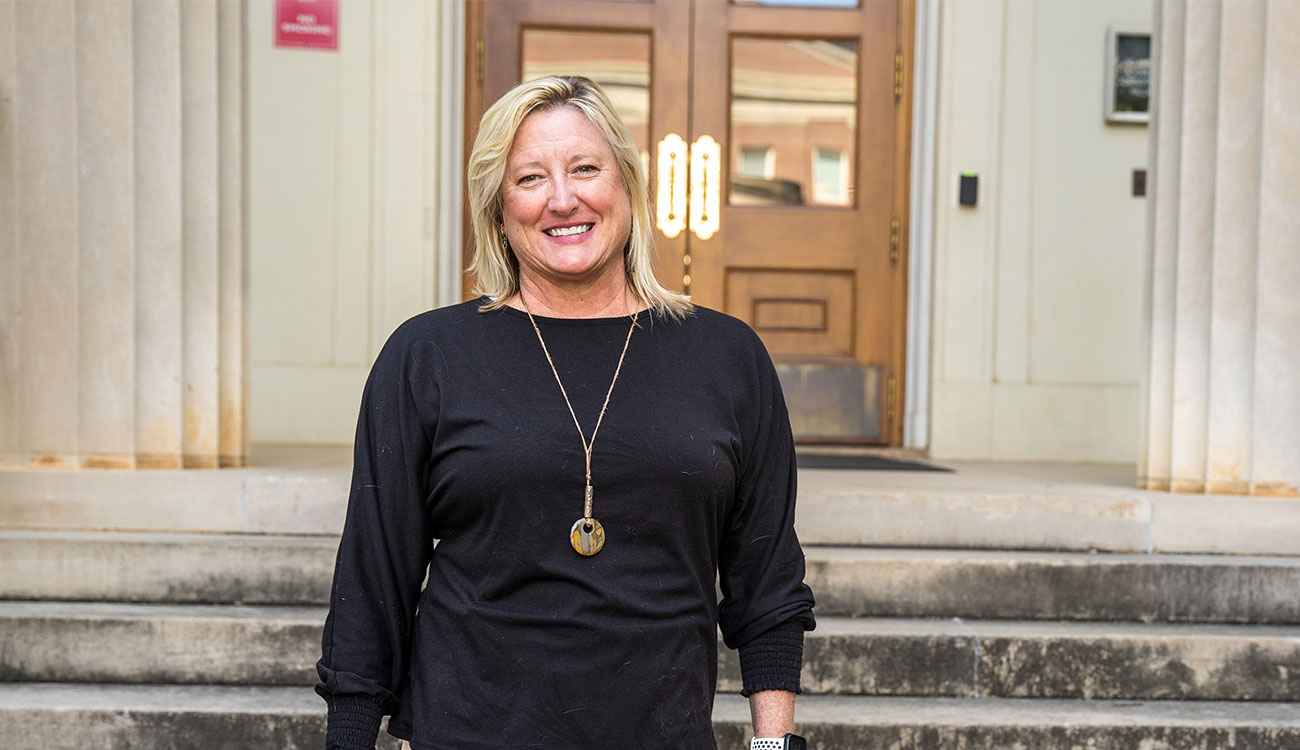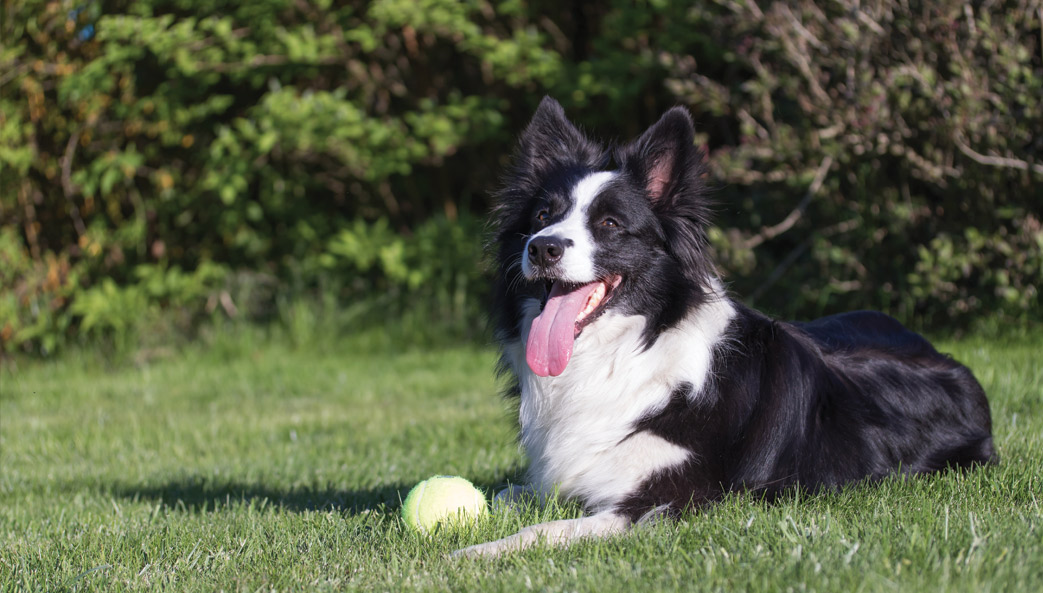The first time Anna Santos climbed astride a horse her feet couldn’t even reach the stirrups. Like a miniature package of cargo, she rode upon the animal’s broad back, balancing as best a small child could.
“I was teeny tiny,” Santos remembered, thinking back to her childhood when she grew up on her family farm. There were beef cows and cats, pigs, dogs, and geese. No goats, she specified. But she preferred the towering, long-maned equines to everything else.
“I was definitely a horse girl.”
It may come as no surprise given where she grew up that, decades later, Santos is still working with animals. She is a lab animal technician supervisor for the University of Georgia’s Office of Research, a licensed veterinary technician, and a 25-year veteran of UGA’s Veterinary Teaching Hospital (VTH). She spent nearly a decade working the intermediate care ward at the VTH and now supervises University Research Animal Resources.
At UGA, Santos has made caring for animals—and educating others who care for animals—a central piece to her mission. Recently, she finished her master’s degree in public health, planning to share her knowledge in treating animals with those who use animals in public service.
Her family is a bit of an academic bunch. It carries a long history at UGA: Her great-grandfather was the first to attend the university, followed by both her grandfather, who became a surgeon in the Athens area, and her grandmother, who went back to school late in life and acquired a collection of degrees like they were trading cards.
“She was like 60, and she got four degrees,” Santos said. “My family is a bit like that. My dad had, like, seven. We’re education bound, I guess.”
When she came to the school in 1990 to pursue her animal sciences degree, Santos figured she’d focus on the animal that had always been her favorite: horses and other large animals. As she’s gone through her degree program, practicing veterinary medicine, and expanding her role in the industry, however, she gravitated another way.
Small animals.
While she works with a host of small animals in her capacity at UGA, she did take a particular interest in dogs—specifically, working dogs.

Working dogs are purpose-trained and bred to assist humans by performing specific tasks. You’ve seen them in various roles: herding sheep on a farm, alerting their humans to specific medical conditions, searching for survivors in rubble, and walking alertly alongside a police handler. At UGA, there are a handful of K9 officers, including bomb-sniffing dogs that attend every major sporting event or graduation.
Some of these jobs can be dangerous and taxing for the animal, especially in Georgia’s summer heat. Santos would see them regularly when she worked in the hospital.
“I learned more about them,” Santos said. “Working dogs aren’t pets. Some of them can be dangerous, so you have to be trained in certain ways to be safe and able to treat them effectively.”
University of Georgia police officer Rusty Williams knows this as well as anyone. Williams has served as a training sergeant and canine handler for the department for over 25 years. Prior to his arrival in Athens in 1999, he was a military police canine handler, as well. According to Santos, Williams had attended a workshop by K9 MEDIC—an education program in development since 2004 that provides support to handlers, medics, and others in learning medical skills to treat working dogs—and was interested in doing a similar, less expensive workshop for his officers. Knowing she had a background in critical care and public health, he approached Santos.
Santos put together an intensive workshop, the first of which was held in Summer 2023 and again in July of this year. She covered a range of topics: How does the dog look and act normally? How do you check vitals like temperature, pulse, and respiration? What’s the dog’s gum color and hydration level?

“These are things you can gather quickly,” she said. “We teach the officers how to do these things, how to recognize ‘normal,’ and how to monitor that the animal is going back to that baseline.”
She teaches about emergency scenarios most likely to be seen in the field: heat stroke, dehydration, and a condition called gastric dilatation and volvulus (GDV), in which the stomach bloats and twists on itself. She instructs how to properly apply tourniquets to injured animals in a safe, effective, and humane manner. Even the most well-trained dogs can become dangerous if injured.
Most importantly, Santos teaches that first aid can be delivered, but then handlers should take their animal to the vet.
“We want them to figure out what’s going on, address the immediate care, and then turn them over to a professional,” she said. “Anyone who handles an animal needs this kind of a review because how often do you have these emergencies?”
Not often enough to justify the exorbitant costs of regular training to keep the information fresh. Santos’s workshop has helped fill the gap at UGA.
Recently, Santos finished a master’s degree in public health, for which she researched and developed a curriculum for canine handlers and emergency medical services on treatment of operational canines in emergency situations. The limited resources were one of the things her studies uncovered.
“Many departments—police, EMS, SWAT—are limited in what they can offer their handlers,” she said. “So who do you train and how do you train them. There is some baseline first aid care everyone can learn.”






